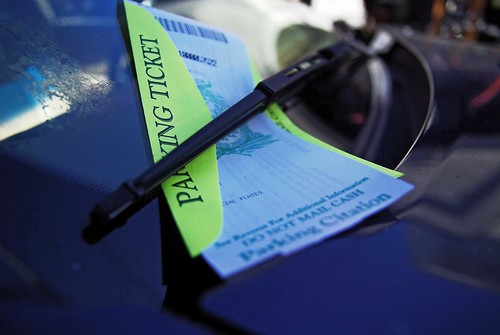4 Tips for Mobile Concession Parking
Without a good location, even wonderful restaurants can whither. Luckily, food trucks can travel to meet customers wherever they are. Still, it doesn’t take long before truck owners notice that some parking spots boost business better than others. Follow these 4 tips for mobile concession parking to reach your customers when they want your food most.
1. Know the Local Laws Better Than Police
Food truck parking laws vary from city to city. In fact, laws can vary from street to street. This creates a confusing environment. In LA, for instance, any truck over six feet tall cannot park on within 100 feet of Abbot Kinney Blvd intersections between Westminster and Venice Blvd.
Know your local parking laws better than the police and parking officials. That’s the only way to score a great spot without getting a ticket.
2. Know How to Fight Tickets

Image via Flickr by Charleston’s The Digitel
Cities don’t always make it easy for food trucks to follow laws. Poorly marked streets signs make it nearly impossible for anyone to understand where they can and cannot park.
People handing out tickets, however, don’t often care that the “no parking” sign turned into rust 10 years ago. They just want to write tickets to meet their quotas and keep their bosses happy.
That’s why you need to know how to fight unwarranted tickets. If you get a ticket, take a picture of the street and any obscured signs. If you eventually have to stand in front of a judge, you’ll need this proof to avoid the fine.
3. Consider Using a Food Truck Park
Many cities have designated parking lots where food trucks can serve customers. Houston food trucks often use the Houston Food Park at 1504 St. Emanuel St. Brooklyn Flea has over 250 vendors (many of them food trucks) during the weekends. Even a smaller city like New Haven, CT uses the parking lot outside of the Ingalls Rink (AKA “the Whale”) as a place for food trucks.
Using a food truck park makes it easy for customers to find you. It also lets customers purchase items from multiple vendors. That’s a win-win for everyone.
5. Park Near Your Customers
Knowing your target demographic will help you decide where to park your food truck.
Many food truck owners like to park downtown, where they have access to a diverse group of people.
Depending on what you sell, though, you may want to explore other options. If you make authentic tamales, then you might want to target a neighborhood with a large Mexican population. If you have the best pub grub in town, then you might want to avoid the lunch crowd so that you can focus on night owls as they leave the area’s most popular bars.
Find a parking space where people want your food. That will take you closer to making your business successful.
When you purchase a food truck from Russell Concession & Mobile Kitchens, you’ll be off to a great start. However, it’s important to consider where you’ll park it. What challenges do you anticipate when it comes to starting your business and how do you plan to roll with them? Share your thought in the comments below.
